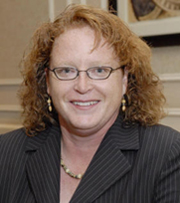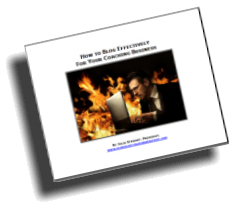 Mattison Grey is professional business and leadership coach and the founder of Greystone Guides, a high performance coaching and consulting firm. Her clients and fans enjoy her contrarian views and her courage to be provocative in a way that challenges the status quo. Mattison is fascinated by the gap between high performers and low performers and what it takes to go from mediocre to masterful in a chosen endeavor.
Mattison Grey is professional business and leadership coach and the founder of Greystone Guides, a high performance coaching and consulting firm. Her clients and fans enjoy her contrarian views and her courage to be provocative in a way that challenges the status quo. Mattison is fascinated by the gap between high performers and low performers and what it takes to go from mediocre to masterful in a chosen endeavor.
Coaching is a popular choice of profession for people right now.
Seems like everyone is a coach or is becoming a coach, doesn’t it? That is no secret. The trouble is there are secrets about coaching and having a coaching business. Secrets no one is telling beginning or emerging coaches.
The coaching schools won’t tell you – you might not sign up; coaching organizations won’t tell you – it’s not their role. So who has the guts to tell you? Julia Stewart, the gutsy-ist coach in America, has asked me to expose some of those secrets and share with you what I think are the biggest myths about coaching and starting a coaching practice. Here we go with the 8 biggest myths many emerging coaches believe.
MYTH #1, 2 and 3: Everyone needs a coach; coaching is for everyone; or everyone is a prospect. Sure everyone has room for improvement, but not everyone wants it. Learning to identify who is curious about coaching and who is not takes quite a bit of practice, and assuming everyone is a prospect can get in the way of accurate sorting.
MYTH #4: Coaching fixes problems. In fact, if you approach coaching with that mentality you will drive people away. Even though few people’s lives are perfect, they will resist coaching if you “come from” something’s wrong.
I often say, Amateur Coaching fixes problems. Masterful Coaching creates them.
What do I mean by that? If you take the client’s problem or challenge at face value, you will be missing a huge opportunity to really move them toward their greatness. Behind the presented challenge is always a bigger issue. Most of us know that. What masterful coaches know is that you don’t have to find that issue and solve it. You have to help the client find a project or game that is so interesting, fun and engaging that the previous issue magically disappears or is solved by the new game.
Here is a real life example: A few years ago, I was bored with my coaching business and not having much fun anymore. That was a pretty big problem. I asked Julia for a coaching session. Long story short, as a result of the coaching, I decided to DOUBLE my coaching fees. Never mind my fee was already pretty substantial. Doubling it would, with the exception of celebrity coaches, put it near the top tier of coaching fees in the world. WOW, now I had a HUGE “PROBLEM” but boy was I excited about it, and instantaneously my boredom went away and the fun returned.
MYTH # 5: You have been coaching your entire life. Even if you have been a great listener and confidant all your life, that doesn’t mean what you were doing is coaching or that you were meant to be a coach. When you get really good professional training it will become obvious that, while what you were doing may have been helpful for people, it wasn’t really professional coaching.
MYTH #6: You can make a great living in the beginning. You can’t charge high fees in the beginning. Beginner coaches get beginner clients, who pay beginner fees. That is true in most professions. The more experience you have under your belt, the higher fee you can charge.
MYTH #7: Internet marketing is coaching. This is a huge misconception and my biggest pet peeve. You can be a coach who uses internet marketing, or you can be an internet marketer who coaches. Trying to be both or not being clear about this distinction is a big mistake that beginners make. Either way is fine, but to really make it work you have to choose.
Finally the biggest myth in coaching today:
MYTH #8: You can have a successful coaching business without learning to sell. I hate to be the one to break it to you, but to fill your coaching practice you must learn to sell. This has never been more of a reality than in today’s extremely competitive market. With a coach on every corner, the only coaches that will make it will be the ones who can sell in a graceful authentic way.
Related posts:


 Have you ever wished you could get insider tips on how to succeed at something?
Have you ever wished you could get insider tips on how to succeed at something? 
 The Principles of Attraction, as well as the Qualities of Attraction, will help you attract more of what you want, more easily and quickly.
The Principles of Attraction, as well as the Qualities of Attraction, will help you attract more of what you want, more easily and quickly.


 School of Coaching Mastery is undergoing several exciting changes at once, including our Coach Certification process.
School of Coaching Mastery is undergoing several exciting changes at once, including our Coach Certification process.
 If you're building your coaching business for the first time, or you've recently recommitted to filling your practice, you could get stuck at some point.
If you're building your coaching business for the first time, or you've recently recommitted to filling your practice, you could get stuck at some point.




